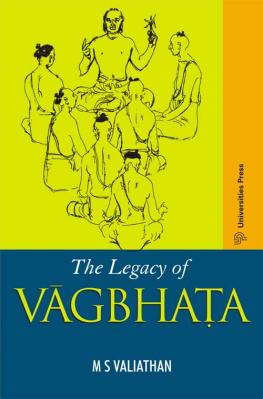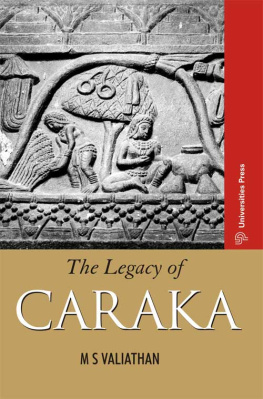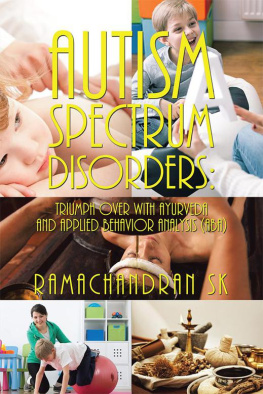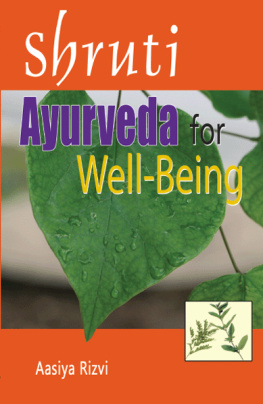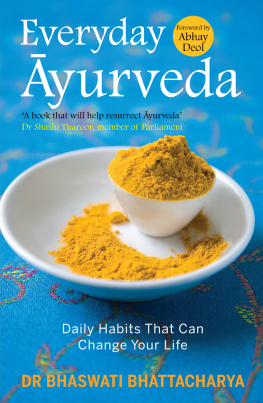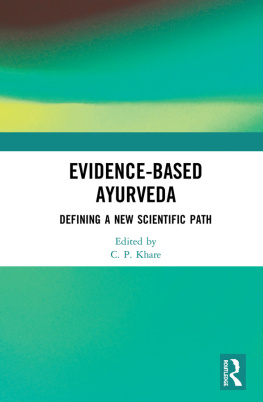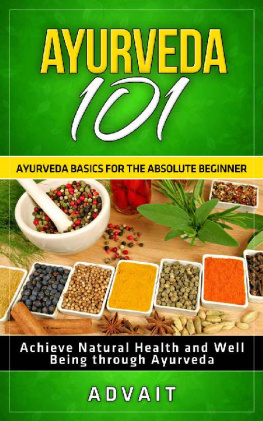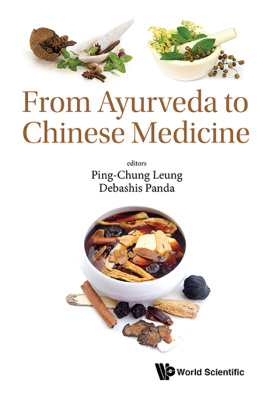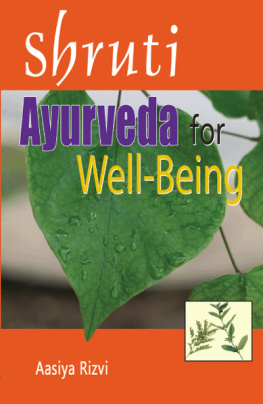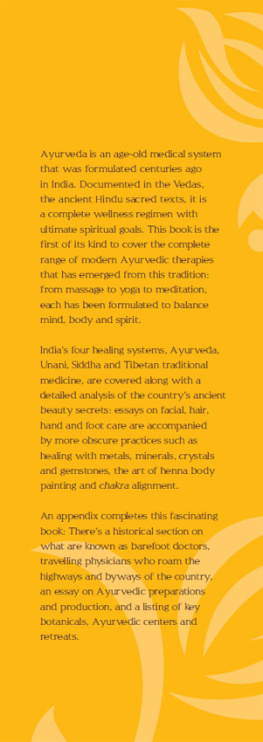The Legacy of Vgbhaa
For our entire range of books please use search strings "Orient BlackSwan", "Universities Press India" and "Permanent Black" in store.
Universities Press (India) Private Limited
Registered Office
3-6-747/1/A & 3-6-754/1, Himayatnagar, Hyderabad 500 029 (A.P.), INDIA
e-mail:
Distributed by
Orient Blackswan Private Limited
Registered Office
3-6-752 Himayatnagar, Hyderabad 500 029 (A.P.), INDIA
e-mail:
Other Offices
Bangalore, Bhopal, Bhubaneshwar, Chennai,
Ernakulam, Guwahati, Hyderabad, Jaipur, Kolkata,
Lucknow, Mumbai, New Delhi, Noida, Patna
Universities Press (India) Private Limited 2009
First published 2009
Reprinted 2011
eISBN 978 81 7371 855 7
e-edition:First Published 2013
ePUB Conversion: .
All rights reserved. No part of this publication may be reproduced, distributed, or transmitted in any form or by any means, including photocopying, recording, or other electronic or mechanical methods, without the prior written permission of the publisher, except in the case of brief quotations embodied in critical reviews and certain other noncommercial uses permitted by copyright law. For permission requests write to the publisher.
To Ashima, Manna and Manish
my life's enduring tripod
Transliteration Chart

Preface
This volume is the third in my Legacy series, the two previous ones on Caraka and Suruta having appeared in print during the last five years. The welcome received by the earlier books from a growing readership and their positive appraisal by scholarly reviewers persuaded me to undertake a similar exercise on Vgbhaa and complete the series on the 'Great Trinity5 (Bhattray) of yurveda.
In writing the Legacy series, I had adopted from the start a format which, I hoped, would make them readily accessible to the students who opt for yurveda and medicine after twelve years of school, while maintaining utmost fidelity to the original texts. In The Legacy of Vgbhaa, I have therefore refrained from lengthy and inconclusive discussions on non-medical topics such as the identity of Vgbhaar his date, place and so on. Apart from the fact that our ancestors who shaped India's cultural inheritance were loath to talk about themselves, the results of scholarly debates on the historical and personal data of Vgbhaa seemed to me to be of limited interest or benefit to students who are impatient to get on with medical studies. I read many references to Vgbhaa in the books on yurvedic history by reputed authors such as Heinrich Zimmer, PV Sharma and NVK Varier, and also held discussions with senior yurvedic colleagues before settling on two editions of Agahdaya as the basic texts for my study. These were Agahdayam (three volumes) text and English commentary by Professor Srikantha Murthy and Agahdayam, text with Malayalam translation by PM Govindan Vaidyar and Cheppad Achutha Varier. Whenever in doubt, I also consulted Agahdayam (text with Sarvgasundara commentary of Aruadatta and yurvedarasyanak of Hemdri) edited by Harisastry. Once again, I followed the thematic approach on the lines of my books on Caraka and Suruta, which seems to have been well accepted by the readers. I must acknowledge that the work on Vgbhaa made less demands on my time and effort than the study of the two Samhitas, and often became a joyful experience.
Though I had opted to study Agahdaya as it represented the essence of Vgbhaa's legacy, I had to consider Agasagraha regardless of whether it was authored by the same Vgbhaa. However, on going through Sagraha with its extensive commentary by my mentor, Shri Raghavan Thirumulpad, I soon realised that neither time nor my training would permit me to write on Vgbhaa's legacy based on a critical and exhaustive study of Sgraha and Hdaya. Nevertheless, as Agahdaya proudly claimed that it sprang from the churning of the ocean of Agasagraha,, I have attempted a limited comparative analysis of three identical subjects drawn from the Carakasamhita, Agasagraha and Agahdaya in the Introduction. The analysis confirmed the general impression that the core of yurvedic doctrines, profile of diseases and procedures remained unchanged over centuries whereas changes, which did occur, were more or less confined to the domain of medicinal formulations. The limited exercise also suggested the appropriateness of doing a well-planned comparative study on the evolution of yurvedic concepts and practice based on classical texts from Caraka to Vgbhaa because the five or six centuries which separated them were marked by foreign invasions and major social upheavals in India.
Dr Ramankutty of the Arya Vaidya Sala, Kottakkal, a brilliant yurvedic scholar and authority on medicinal plants, has been a friend, philosopher and guide during my yurvedic studies for the last few years. He not only encouraged me to undertake the Vgbhaa study but also cheerfully scanned my entire manuscript and made numerous suggestions for corrections and improvement. Additionally, he gave valuable assistance by listing the botanical names of plants mentioned in this book, preparing an index and reading the proofs. I have no words to thank him for his untiring support and assistance. As Agahdaya is a distillate of earlier texts, I have taken the liberty of reproducing some of the figures drawn by Mr Joy for my books on Caraka and Suruta in the present volume, for the permission of which I express my thanks to Orient BlackSwan. The inimitable picture of Vgbhaa on the cover, which has allusions to his legendary connection with Kerala was drawn specially for this volume by the renowned artist Nambudiri of Kerala, to whom I am much beholden.
I am grateful to the Ministry of Human Resources Development, Government of India for the award of a National Research Professorship which has supported me during my years of labour in the yurvedic vineyard. I am equally grateful to Dr Ramdas Pai, President of the Manipal University, for continuing to provide me excellent facilities and a congenial environment to follow my academic pursuit in Manipal. It is a pleasure to acknowledge with thanks the assistance of Ms Usha Kamath who typed and retyped my bulky manuscript untiringly and oversaw the smooth movement of papers in the Manipal-Kottakkal-Chennai triangle. I am grateful to Ms Ramaa Kishore for reading the proofs. Ms Padmaja Anant of Orient BlackSwan has been unfailingly supportive, for which I am grateful to her.
I can do no better than conclude by quoting Goethe 'Nowhere would anyone grant that science and poetry can be united. People forgot that science had developed from poetry and they failed to take into consideration that a swing of the pendulum might beneficently reunite the two, at a higher level and to mutual advantage.' Vgbhaa represents Goethe's beneficent reunion of science and poetry at a higher level.
M S VALIATHAN
REFERENCES
PM Govindan Vaidyar: Agahdayam (with Aruodaya commentary in Malayalam excluding Uttara sthna). 7 vols. 6th edn. Devi Book Stall, Kodungalloor, Kerala, 1995.
Cheppad Achutha Varier: Agahdayam (with commentary in Malayalam for Uttara sthna). 2 vols. 6th edn. Devi Bookstall, Kodungalloor, Kerala, 1995.
Harisastri: Agahdayam with Sarvgasundara commentary of Aruadatta and yurvedarasyana ik of Hemdri. Chowkhamba Sanskrit Series, Varanasi, 1982.
KR Srikantha Murthy: Agahdaya
Next page
